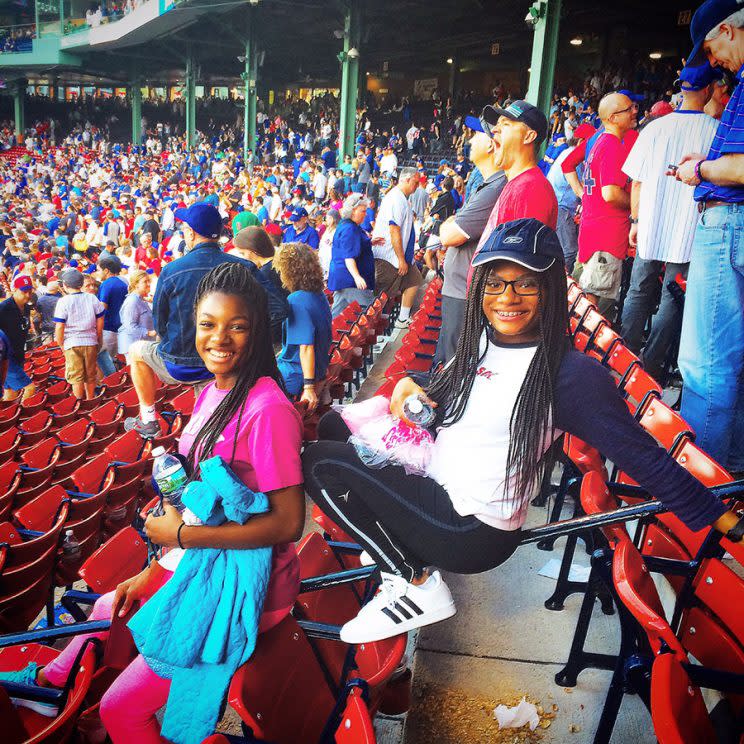High School Hair Policy Is Racist, Parents Claim

Like many schools across the country, Mystic Valley Regional Charter School in Malden, Mass., has a dress and grooming code. But this one bans the wearing of braids and extensions — a measure that many students and parents are calling out as discriminatory and racist, as black students wearing their hair in braids have been issued detention and suspensions for violations that seem to target them specifically, according to Boston 25 News.
In a statement, the school has said of its policy, “One important reason for our students’ success is that we purposefully promote equity by focusing on what unites our students and reducing visible gaps between those of different means. Our policies, including those governing student appearance and attire, foster a culture that emphasizes education rather than style, fashion, or materialism. Our policy on hair extensions, which tend to be very expensive, is consistent with, and a part of, the educational environment that we believe is so important to our students’ success.”
But mothers of black and biracial children attending the school say what the policy actually does is punish their children for their race and how it’s reflected in their hairstyling choices. The school’s policy explicitly bans braids that have extensions or any additional hair woven into them.

In an interview with the Boston Globe, Colleen Cook, who is white, said that her twin 15-year-old daughters, Deanna and Mya, who are black, have served multiple detentions and face suspension — all because of their hair.
Cook tells Yahoo Beauty that her daughters, who have attended Mystic Valley since kindergarten, had grown up at the school seeing fellow black girls wearing braids, dreadlocks, and other traditionally African-American hairstyle — so when they asked to have their hair braided before spring break, Cook says she told her daughters, “Of course.” However, two days after being back in school after returning from spring break — and having their hair braided — Cook says one of her daughters was sent by her history teacher to the front office for her hair and sent home with a uniform infraction.
She adds that when she told the school that there were lots of other girls who wore their hair in braids other than her daughters, so that couldn’t be the case, the school then asked her to tell themother students’ names. When Cook refused, the punishments for her daughters seemed to escalate, as they were barred from their sports teams, school sporting events, and even the prom — all because they refused to take their braids out.
“My girls says, ‘I like who I am in my hair. I feel beautiful in my hair. I want to leave my hair as it is,'” Cook says of her daughters, on why they have continued to endure punishments by the school instead of changing their appearance. “It’s so unfortunate that the school won’t listen to how this affects black children. It’s unfair and it’s disproportionately targeting them. It’s really harmful to my girls to say, ‘Your culture isn’t allowed. Your culture will not be permitted in school.'”
Cook is now working with an attorney through ADL New England and filing a formal complaint with the Department of Education.
Robert Trestan, regional director of the Anti-Defamation League (ADL) in Boston, tells Yahoo Beauty that he was contacted by Cook about the school’s policy and its impact on her daughters. But after setting up a call with the school, officials failed to call in on time, he says.
“We’re concerned that the school’s policy is potentially being implemented in a discriminatory way,” he adds. “When students go to school, they need to know that all policies are applied equally, to everyone. The information we received from [Cook] raises some questions that need to be answered.”
While this is a charter school, it’s still publicly funded, Trestan adds, and there are regulatory bodies that should take a look at the policy — possibly including the Massachusetts Department of Elementary and Secondary Education or the attorney general’s office.
Mystic Valley Regional High School is far from the first school to face allegations of racism as a result of a ban on traditionally black hairstyles.
Last year, Butler Traditional High School in Louisville, Ky., made headlines for its policy banning “dreadlocks, cornrolls [sic], [and] twists” and “Afros longer than two inches in length” — a move that Kentucky lawmaker Attica Woodson Scott labeled as a “no natural hair policy” after she saw the published dress code at the school, where her daughter is a student.
Soooo…my daughter had registration today and let's just say she's not happy abt the #JCPS no natural hair policy. pic.twitter.com/ApPDyv3sbo
— Attica Woodson Scott (@atticascott) July 27, 2016
Butler High School has since revised its policy to read that “hair must be well-groomed, well-kept and at a reasonable length.”
Pretoria Girls High School in South Africa also faced criticism last fall when its policies implied that natural hair was “messy” — and an offense worthy of suspension.
There is a long-standing history of hair discrimination as a civil rights issue — one that too often extends far beyond schools and into the workplace, setting up a pattern of discrimination that can limit black women’s advancement and thus economic security.
Read more on Yahoo Style + Beauty:
Teen Was Sexually Harassed at School — Then Asked to Take a Vow of Silence
Students Apologize for ‘Racist’ Promposal at Center of Social Media Firestorm
High School Suspends Hair Policy — Called Racist — After Community Pushback
Follow us on Instagram, Facebook, and Pinterest for nonstop inspiration delivered fresh to your feed, every day. For Twitter updates, follow @YahooStyle and @YahooBeauty.
